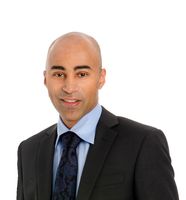South Auckland > Public Hospital Services > Health New Zealand | Te Whatu Ora - Counties Manukau >
Bowel Screening | Counties Manukau
Public Service, Gastroenterology, Oncology, Endoscopy (Gastroenterology)
Description
The National Bowel Screening Programme (NBSP) is a free programme to help detect bowel cancer.
It is being offered every two years to men and women aged 60 to 74 years who are eligible for publicly funded health care. Information on who is eligible for publicly funded health services is available on the Ministry of Health website or by phoning 0800 924 432.
If you are eligible to take part, you will be sent:
- an invitation letter
- a consent form
- a free bowel screening test kit, with instructions on how to use it.
The test can be done at home and is simple to do. Find out more at Doing the test.
You will be invited to take part in free bowel screening unless you tell us you don’t want to. You can opt out by calling freephone 0800 924 432. If you move house or change your postal address, please contact us to update your address so that your next invitation letter reaches you.
|
Returning your bowel screening kit If you are in Waitematā or Counties Manukau, you can return your completed kit in the envelope provided in one of two ways. Either: 1. By posting it, or 2. Dropping it into a Labtest collection centre during opening hours. |
BELOW ARE SOME OF THE LABTESTS DROPOFF SITES WITHIN AUCKLAND
Roll-out timetable For Counties Manukau Health
Counties Manukau Health went live for NBSP in July 2018. Invitations and test kits are sent out from the National Coordination Centre (0800 924 432). Eligible participants will be sent test kits every two years.
DUE TO COVID-19, KITS WILL NOW BE DELAYED BY UP TO 3 MONTHS SINCE YOUR LAST COMPLETED KIT
- About 5% of participants who return a test kit will have a positive result and require a colonoscopy.
- About 7 in 10 people who have a colonoscopy as part of the NBSP will have polyps, which if removed may prevent cancer developing.
- About 7 in 100 people who have a colonoscopy as part of the NBSP will be found to have cancer and most will require treatment.
Consultants
-

Dr Susan Bigby
Shared Lead Pathologist
-

Dr Devesh Dixit
Lead Radiologist
-

Dr Kumudith Ekanayake
Gastroenterologist
-

Dr Dinesh Lal
Lead Endoscopist
-

Dr Adele Melton
Clinical Lead
-

Dr Stephen Persson
Gastroenterologist
-

Dr Anurag Sekra
Gastroenterologist
-

Dr Masato Yozu
Shared Lead Pathologist
Referral Expectations
As this is an opt-out programme, men and women aged 60 to 74 years within Counties Manukau will be automatically offered a bowel screening test every two years. If you wish to check your enrolment status and details you can freephone 0800 924 432.
Who should do the test?
Most people aged 60 to 74 years, who are eligible for free public healthcare, can do the bowel screening test. This includes people who are at increased risk of bowel cancer.
If you experience symptoms of bowel cancer (bleeding in your bowel motion or a change to your bowel habits that continues for several weeks), you should see your GP.
Who should not do the test?
Bowel screening is not right for everyone. Participants should not be part of the bowel screening programme if they:
- have symptoms of bowel cancer
- have had a colonoscopy within the last five years
- are on a bowel polyp or bowel cancer surveillance programme
- have had, or are currently being treated for bowel cancer
- have had their large bowel removed
- have ulcerative colitis or Crohn’s disease that is currently active
- are seeing their doctor about bowel problems.
Receiving a FIT test result
Eligible participants will complete, at home, the faecal immunochemical test (FIT), which can detect tiny traces of blood present in the bowel motion. Once the test has been posted and analysed by the bowel screening testing laboratory, an electronic message/result will be sent to their GP, or if no GP is selected to Counties Manukau Health. If the test is negative, a letter will be sent out to the participant and they will be re-invited in 2 years' time if they remain eligible to be on the programme.
If a positive FIT result has been received from the bowel screening testing laboratory, the GP/Practice Nurse will:
- Contact the patient
- Advise the patient of the positive result
- Discuss the implications of the positive result (as they will most likely require a colonoscopy)
- Refer the patient to Counties Manukau Health for a colonoscopy, within ten working days.
Booking in for a colonoscopy
If a positive referral has been received by Counties Manukau Health, our Bowel Screening Nurse will contact the patient to organise a colonoscopy, explain the procedure and go through a pre-assessment questionnaire with them. The patient will then be sent out a bowel preparation kit to take before their procedure, along with their appointment letter.
Fees and Charges Categorisation
Free
Fees and Charges Description
There are no charges for services to public patients if you are lawfully in New Zealand and meet the Eligibility Direction’s specified criteria set by the Ministry of Health.
If you do not meet the criteria, you will be required to pay for the full costs of any medical treatment you receive during your stay.
To check whether you meet the specified eligibility criteria, visit the Ministry of Health website https://www.health.govt.nz/new-zealand-health-system/eligibility-publicly-funded-health-services
Procedures / Treatments
A colonoscopy is an examination that involves using a long flexible tube, which has a tiny camera attached and is small enough to enter via the rectum and travel through the bowel. This enables the doctor to see the inside of your large bowel and examine the surfaces directly and take biopsies (samples of tissue) if needed. Treatment of conditions can also be undertaken. The procedure is performed in a day stay operating theatre. What Happens Before the Colonoscopy? The Bowel Screening colonoscopies are performed at the Endoscopy Unit at Manukau SuperClinic. Your doctor will explain the procedure to you prior to your examination and will get you to sign a consent form, saying that you agree to have the procedure. Before the procedure takes place, your bowel needs to be completely clear of faecal matter. To accomplish this you must follow these instructions carefully: (1) On the afternoon before your test you will be asked to drink 3-4 litres of a preparation called ‘Prep Kit-C’. This works by cleaning the bowel and causes you to frequently go to the toilet. (2) It is important that your bowel return is “clear” for us to be able to safely perform the procedure. This means there has to be no particles and the return should be a urine colour. Your nurse will want to know what your bowel return is like. You will need to drink the bowel preparation until the return is clear. (3) You should not eat or drink anything for at least 6-8 hours prior to the examination. How Long Does the Examination Take? The test itself usually takes around 30 minutes. However, depending on your case and the findings, may take slightly more time. What Happens During the Colonoscopy? You will be taken on a bed into the procedure room where you will be asked to lie on your left hand side. An instrument that measures your pulse and oxygen levels will be placed on your finger. A sedative will be given via the drip in your arm or hand to help relax you – it will not put you to sleep completely. You will be given an oxygen mask to wear throughout the procedure. The doctor will then start the examination. To help in moving the scope (tube) around the bowel you may be asked to change your position and the nurse may have to apply pressure to parts of your stomach. If required a biopsy may be taken during the procedure. A biopsy is when a small amount of tissue is taken from the lining of the bowel and examined later. You will not feel the biopsy being taken. What Happens After the Colonoscopy? You will be taken on your bed into the recovery room. Here the nurse will check your blood pressure and pulse. You will be given time to wake before getting changed and going home. After the examination you may feel a little drowsy as the sedative wears off. You can usually eat and drink straight after the examination. It is normal to experience some gas pains caused by the use of air during the procedure. A walk can sometimes relieve this bloated feeling. The results of the examination will be sent your doctor and these and any treatment details will be discussed with you at a later date. Are There Any Risks? As with any procedure there are risks but these are very rare and a colonoscopy is considered one of the safest medical procedures you can have. Risks may include, bleeding, perforation of the bowel lining and discomfort. Your doctor will discuss these with you, before you sign the consent form.
A colonoscopy is an examination that involves using a long flexible tube, which has a tiny camera attached and is small enough to enter via the rectum and travel through the bowel. This enables the doctor to see the inside of your large bowel and examine the surfaces directly and take biopsies (samples of tissue) if needed. Treatment of conditions can also be undertaken. The procedure is performed in a day stay operating theatre. What Happens Before the Colonoscopy? The Bowel Screening colonoscopies are performed at the Endoscopy Unit at Manukau SuperClinic. Your doctor will explain the procedure to you prior to your examination and will get you to sign a consent form, saying that you agree to have the procedure. Before the procedure takes place, your bowel needs to be completely clear of faecal matter. To accomplish this you must follow these instructions carefully: (1) On the afternoon before your test you will be asked to drink 3-4 litres of a preparation called ‘Prep Kit-C’. This works by cleaning the bowel and causes you to frequently go to the toilet. (2) It is important that your bowel return is “clear” for us to be able to safely perform the procedure. This means there has to be no particles and the return should be a urine colour. Your nurse will want to know what your bowel return is like. You will need to drink the bowel preparation until the return is clear. (3) You should not eat or drink anything for at least 6-8 hours prior to the examination. How Long Does the Examination Take? The test itself usually takes around 30 minutes. However, depending on your case and the findings, may take slightly more time. What Happens During the Colonoscopy? You will be taken on a bed into the procedure room where you will be asked to lie on your left hand side. An instrument that measures your pulse and oxygen levels will be placed on your finger. A sedative will be given via the drip in your arm or hand to help relax you – it will not put you to sleep completely. You will be given an oxygen mask to wear throughout the procedure. The doctor will then start the examination. To help in moving the scope (tube) around the bowel you may be asked to change your position and the nurse may have to apply pressure to parts of your stomach. If required a biopsy may be taken during the procedure. A biopsy is when a small amount of tissue is taken from the lining of the bowel and examined later. You will not feel the biopsy being taken. What Happens After the Colonoscopy? You will be taken on your bed into the recovery room. Here the nurse will check your blood pressure and pulse. You will be given time to wake before getting changed and going home. After the examination you may feel a little drowsy as the sedative wears off. You can usually eat and drink straight after the examination. It is normal to experience some gas pains caused by the use of air during the procedure. A walk can sometimes relieve this bloated feeling. The results of the examination will be sent your doctor and these and any treatment details will be discussed with you at a later date. Are There Any Risks? As with any procedure there are risks but these are very rare and a colonoscopy is considered one of the safest medical procedures you can have. Risks may include, bleeding, perforation of the bowel lining and discomfort. Your doctor will discuss these with you, before you sign the consent form.
Parking
Free Parking
Other
Bowel Screening Counties Manukau Team:
- Cancer Screening Service Manager: Kathy Pritchard
- Clinical Lead: Dr Adele Melton
- Program Manager: Faye Veloria
- Surgical Lead: Ms Maree Weston
- Bowel Screening Nurses: Hannah Gleeson (021 193 9126), Hyleen Pule (021 436 217)
- Endoscopy Lead: Dr Toby Rose
- Histology Leads: Dr Masato Yozu and Dr Susan Bigby
- Radiology Lead: Dr Devesh Dixit
- Practice Team Liaison: Kollin Hilihetule
- Community Coordinators: Mere Dewes, Rowena Marsters and Dana Vetemotu
- Administration Support: Clare Davies
Contact Details
Manukau Surgery Centre
South Auckland
-
Phone
(09) 277 1641
Email
Website
National Bowel Screening Programme: Freephone 0800 924 432
Our main colonoscopy procedure room is Theatre 25 at Manukau Surgery Centre. CT Colonography procedures are undertaken at:
Manukau Radiology Institute Ltd Building 58, 79 Middlemore Crescent, Otahuhu
MMH Main CT Middlemore Hospital, 100 Hospital Road, Otahuhu
901 Great South Road
Manurewa
Auckland
Street Address
901 Great South Road
Manurewa
Auckland
Postal Address
PO Box 98743
Manukau City 2241
Was this page helpful?
This page was last updated at 2:45PM on June 21, 2024. This information is reviewed and edited by Bowel Screening | Counties Manukau.

